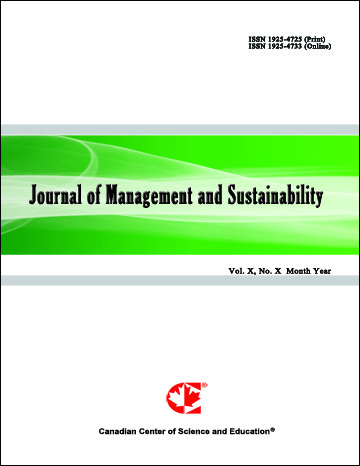Exploring the Local Sustainability Approach Using Indicators
- André Cavalcante da Silva Batalhão
- Denilson Teixeira
- Emiliano Lobo de Godoi
- Glaucia Ap. Prates
Abstract
The purpose of this research was to analyze the application of the Barometer of Sustainability (BS) as a tool for monitoring the sustainability process, using the case of the municipality of Ribeirão Preto, Brazil. The method adopted was based on the important seven stages for the BS application. The methods used were exploratory, descriptive, analytical and field research approaches, combining primary and secondary data. BS as an evaluation tool has proved useful in contributing to the understanding of social and natural phenomena, providing the monitoring of sustainability on a local scale. The findings indicated that the municipality had a greater concern with socioeconomic issues in relation to environmental issues. Based on BS, Ribeirão Preto was classified as intermediate level in relation to Sustainable Development, presenting better performance in the Human Subsystem. To solve the main methodological difficulties related with sustainability indicators to measure the sustainability dimensions on local level, and transpose these challenges is a continuous and emergency process. The integration of information from institutional bodies and sharing of data are paramount for public management at the municipal level to help develop and consolidate national databases. In this paper the authors demonstrated that is necessary to develop efficient methods of sustainability evaluation for local practice to develop policies and actions and add value in the decision-making process of local governments.- Full Text:
 PDF
PDF
- DOI:10.5539/jms.v8n4p39
Journal Metrics
Google-based Impact Factor (2021): 1.54
h-index (July 2022): 37
i10-index (July 2022): 147
h5-index (2017-2021): 12
h5-median (2017-2021): 19
Index
- Academic Journals Database
- ANVUR (Italian National Agency for the Evaluation of Universities and Research Institutes)
- CAB Abstracts
- CNKI Scholar
- EconBiz
- Excellence in Research for Australia (ERA)
- GETIT@YALE (Yale University Library)
- Harvard Library
- HeinOnline
- Infotrieve
- JournalTOCs
- LOCKSS
- MIAR
- PKP Open Archives Harvester
- RePEc
- Scilit
- SHERPA/RoMEO
- Stanford Libraries
- UCR Library
Contact
- Evelyn XiaoEditorial Assistant
- jms@ccsenet.org
